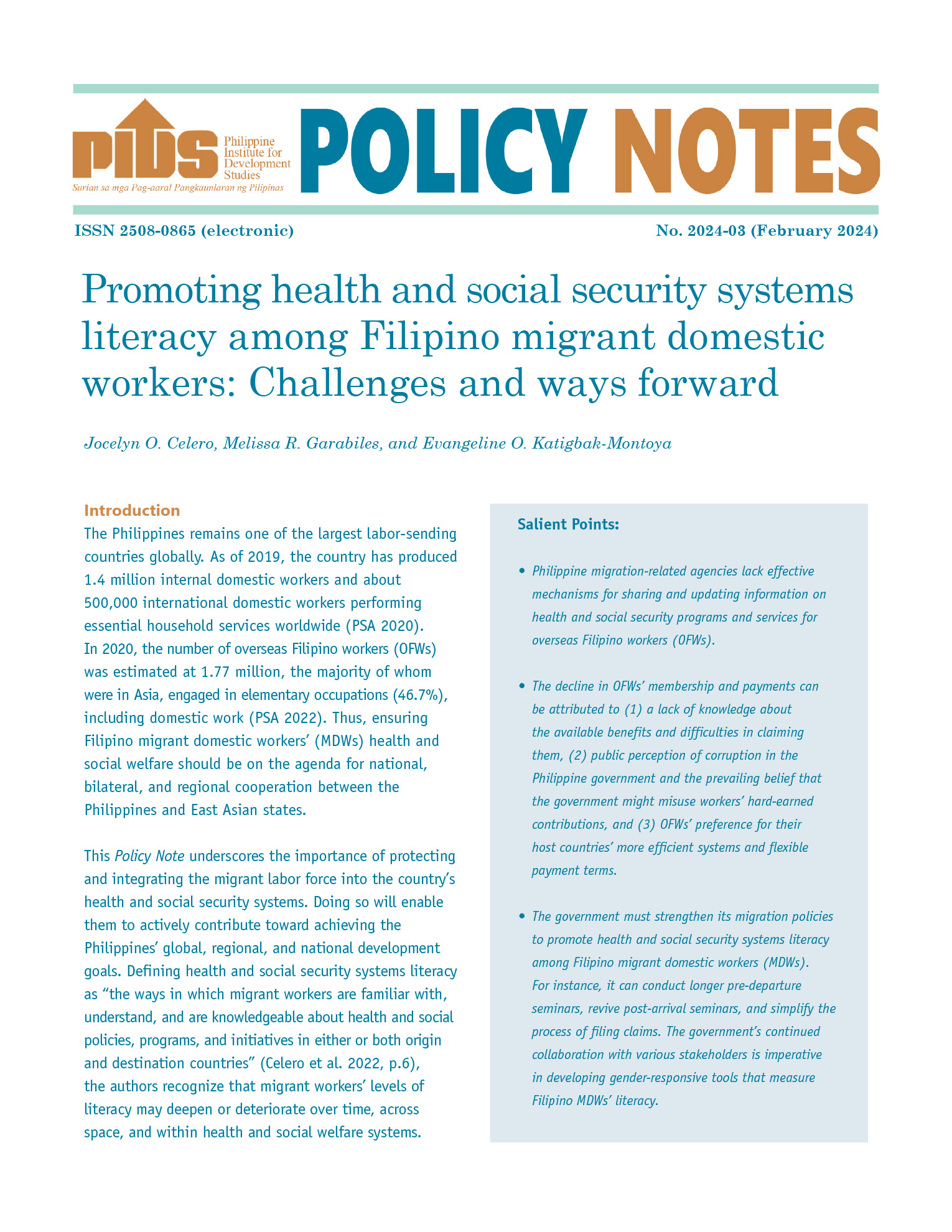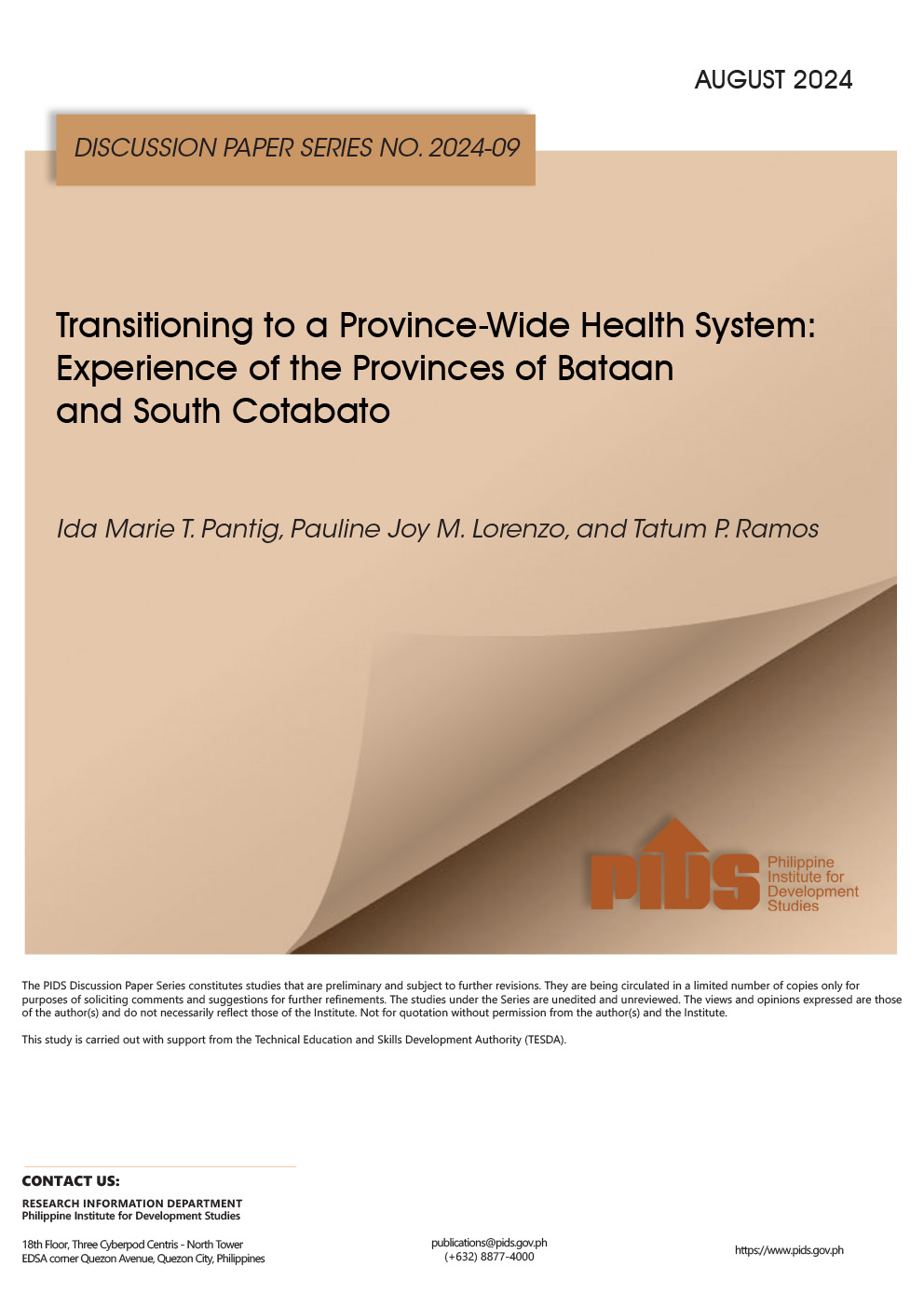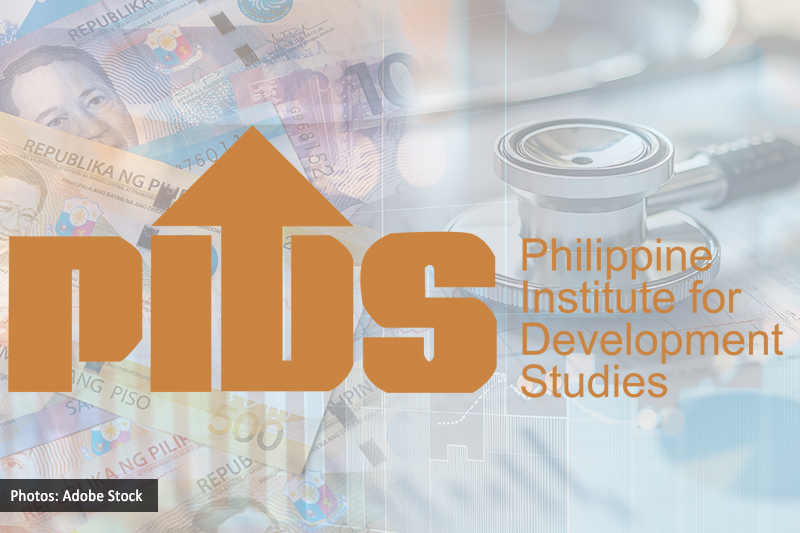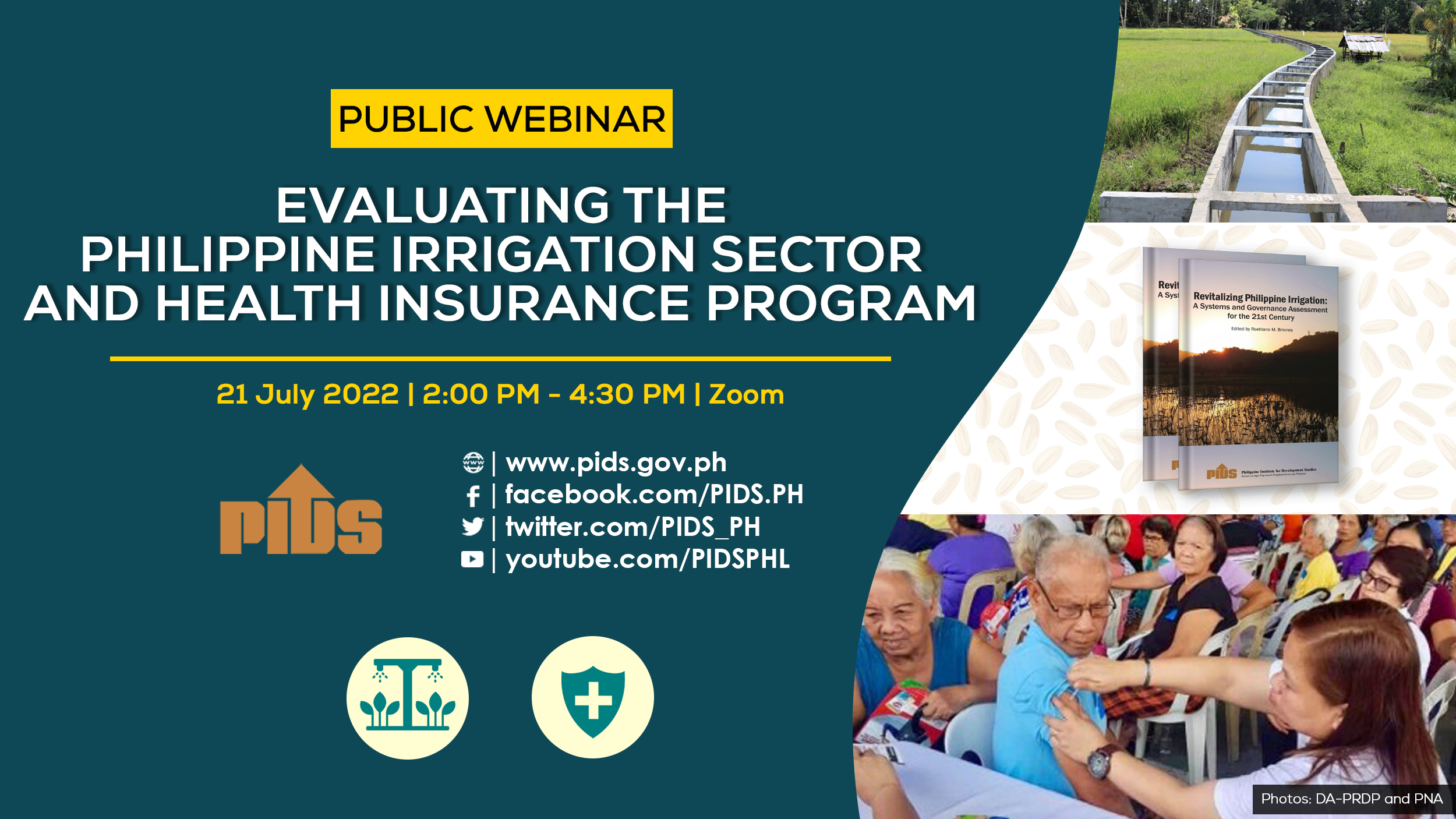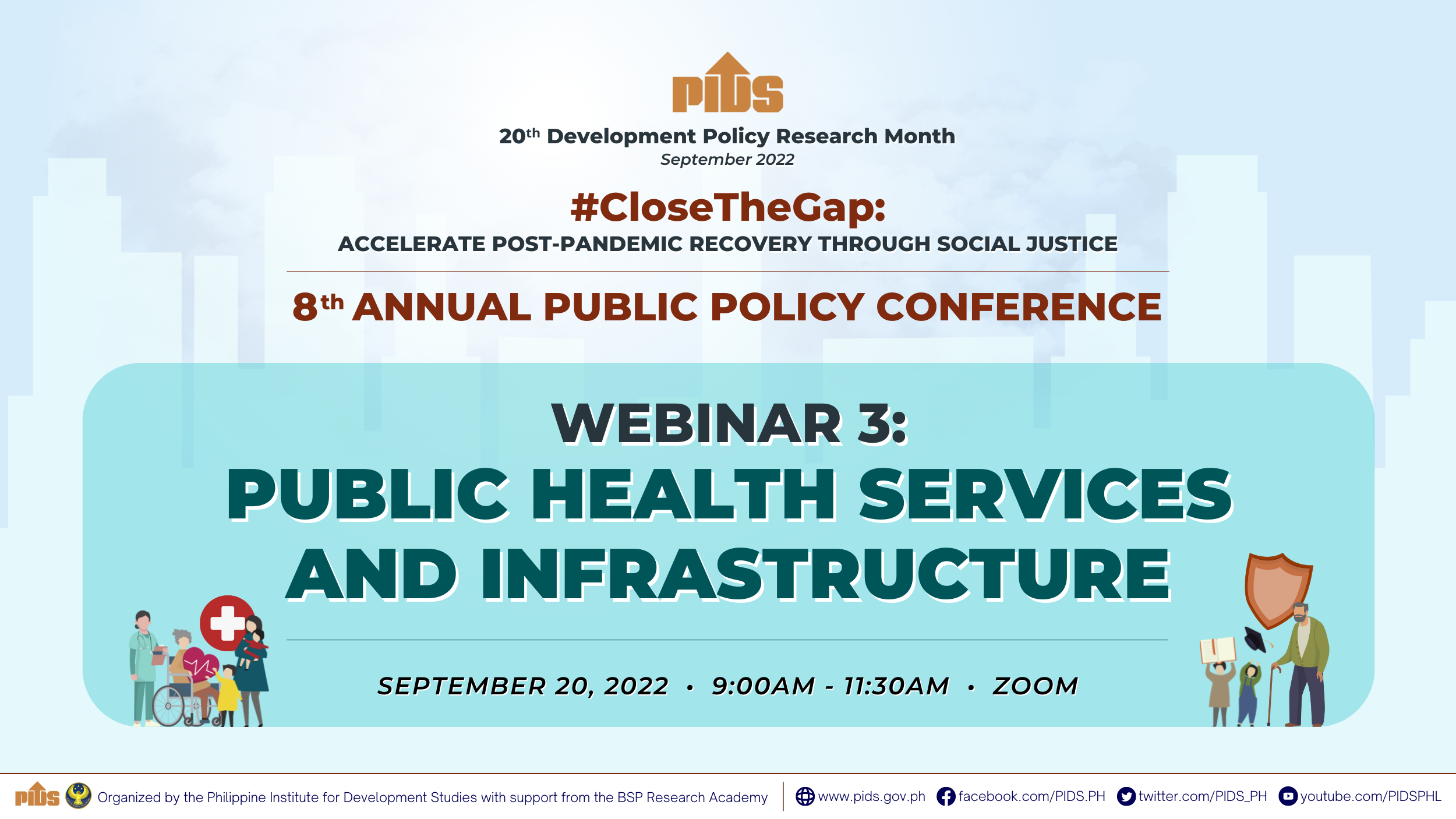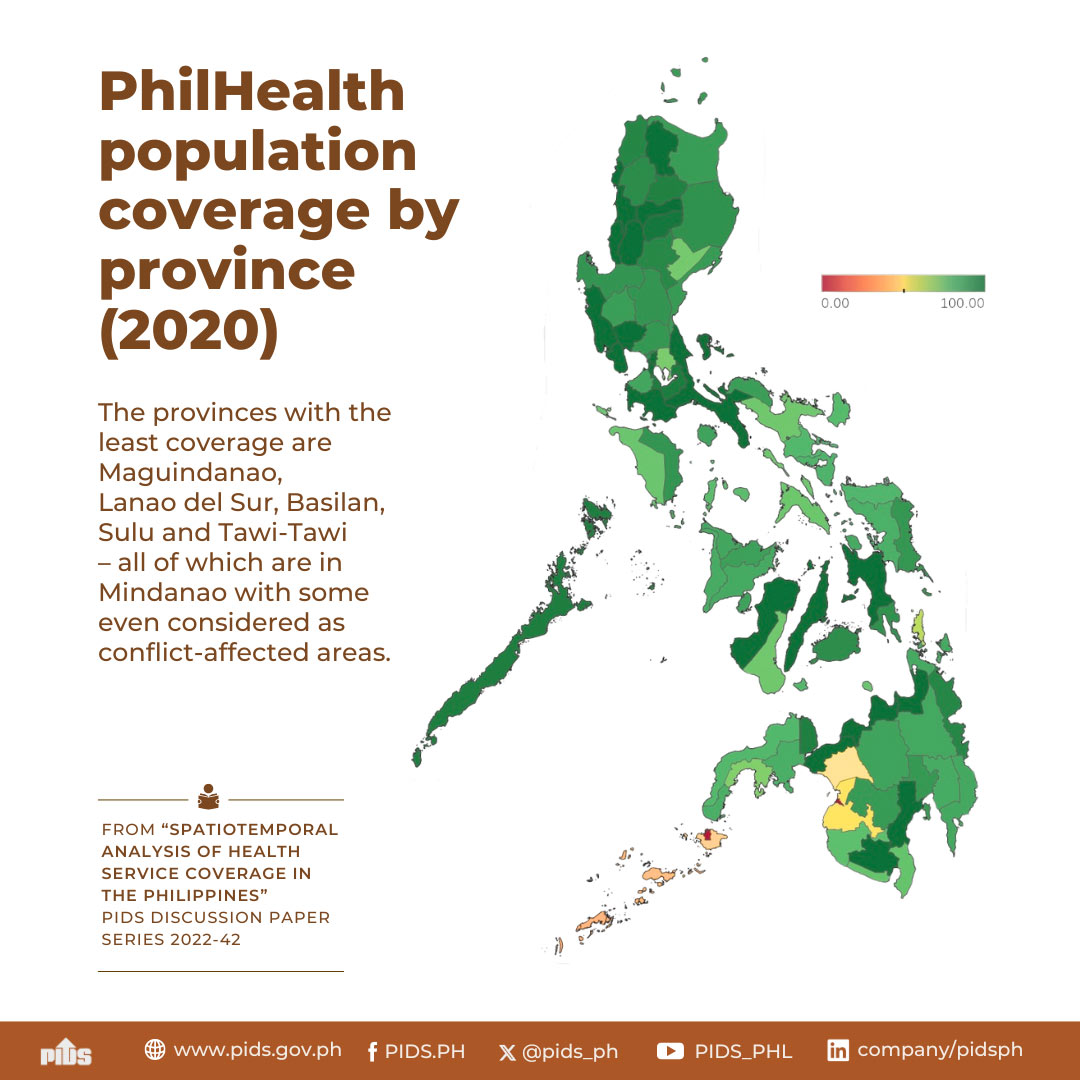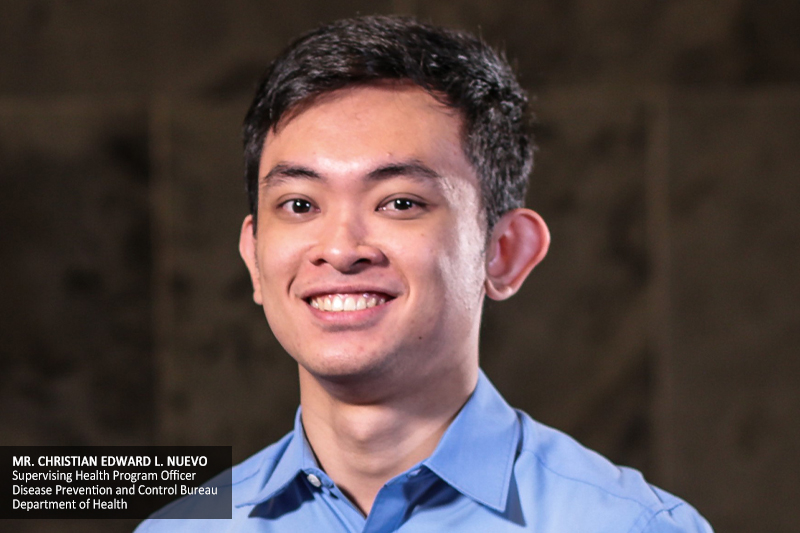
The Department of Health (DOH) is investing more in health facilities and primary care to respond swiftly to future health crises like the COVID-19 pandemic.
This was according to Christian Edward Nuevo, supervising health program officer of the Department of Health’s Disease Prevention and Control Bureau, during the webinar “Examining the Health Impacts of the COVID-19 Pandemic in the Philippines” recently organized by the Philippine Institute for Development Studies (PIDS).
Nuevo noted that one of the country’s major challenges at the outset of the pandemic is the lack of health infrastructure.
“We had to scale up our testing [process] fast and, eventually, we had to put up more beds to make sure that we cater to more inpatient cases. It was really an infrastructure problem. If we look at other countries, some of them were able to respond quickly because they have [previously invested in infrastructures when they experienced a similar crisis],” he pointed out.
The health department is also pushing for stronger primary care.
“If we had been supported by stronger primary care, our households and individuals would [have had] definitive linkages to primary care providers. It would have been easier to cascade important health information, roll out vaccines, keep tabs of people for contact tracing, and [identify] Filipinos who need health care [at the height of the pandemic],” Nuevo said.
He also raised that disease surveillance has long been a problem of the health sector.
“If [only] we had [a] strong information system, [then] perhaps, we didn’t have to put up new systems for contact tracing [which are needed for] case detection and vaccination certification. Things could have been streamlined right from the very beginning,” Nuevo explained.
Aside from improving its information systems, Nuevo shared that the DOH is institutionalizing reforms in procurement and logistics management by shifting toward automated logistics management and pooled procurement to help local government units acquire the resources they need. “A pooled procurement facility can help address the difficulty in getting medical supplies and reagents needed for testing, which also improves healthcare affordability,” he said.
Nuevo also emphasized the need for government agencies to integrate minimum public health standards as part of healthy setting initiatives.
“The experience with the [COVID-19] pandemic showed how health affects other sectors and how other sectors also affect [it]. Thus, there is a need to institutionalize stronger social protection and safety nets so that people [will not] fear going to work and [for them to take] care of themselves in facing extraordinary circumstances like this,” he said.
Lastly, Nuevo pointed out that the DOH should develop a pandemic emergency mode for all its programs, functions, and operations so that when a similar health crisis occurs, health programs and support systems are ready and responsive to the needs of the public.
“The pandemic has highlighted the interconnectedness of [the] health [sector] [with other sectors]. We want to be able to anticipate these problems early on and establish solutions before they even start manifesting. [It is important to promote] intersectoral work as we continue to move forward in addressing the challenges of the COVID-19 now and even its residual effects in the future,” he concluded.
Watch the video of this seminar at https://fb.watch/9nfwuDlgir/ or https://youtu.be/Ia3oWEMOgv4.
For more videos of PIDS events, go to https://www.pids.gov.ph/videos.
This was according to Christian Edward Nuevo, supervising health program officer of the Department of Health’s Disease Prevention and Control Bureau, during the webinar “Examining the Health Impacts of the COVID-19 Pandemic in the Philippines” recently organized by the Philippine Institute for Development Studies (PIDS).
Nuevo noted that one of the country’s major challenges at the outset of the pandemic is the lack of health infrastructure.
“We had to scale up our testing [process] fast and, eventually, we had to put up more beds to make sure that we cater to more inpatient cases. It was really an infrastructure problem. If we look at other countries, some of them were able to respond quickly because they have [previously invested in infrastructures when they experienced a similar crisis],” he pointed out.
The health department is also pushing for stronger primary care.
“If we had been supported by stronger primary care, our households and individuals would [have had] definitive linkages to primary care providers. It would have been easier to cascade important health information, roll out vaccines, keep tabs of people for contact tracing, and [identify] Filipinos who need health care [at the height of the pandemic],” Nuevo said.
He also raised that disease surveillance has long been a problem of the health sector.
“If [only] we had [a] strong information system, [then] perhaps, we didn’t have to put up new systems for contact tracing [which are needed for] case detection and vaccination certification. Things could have been streamlined right from the very beginning,” Nuevo explained.
Aside from improving its information systems, Nuevo shared that the DOH is institutionalizing reforms in procurement and logistics management by shifting toward automated logistics management and pooled procurement to help local government units acquire the resources they need. “A pooled procurement facility can help address the difficulty in getting medical supplies and reagents needed for testing, which also improves healthcare affordability,” he said.
Nuevo also emphasized the need for government agencies to integrate minimum public health standards as part of healthy setting initiatives.
“The experience with the [COVID-19] pandemic showed how health affects other sectors and how other sectors also affect [it]. Thus, there is a need to institutionalize stronger social protection and safety nets so that people [will not] fear going to work and [for them to take] care of themselves in facing extraordinary circumstances like this,” he said.
Lastly, Nuevo pointed out that the DOH should develop a pandemic emergency mode for all its programs, functions, and operations so that when a similar health crisis occurs, health programs and support systems are ready and responsive to the needs of the public.
“The pandemic has highlighted the interconnectedness of [the] health [sector] [with other sectors]. We want to be able to anticipate these problems early on and establish solutions before they even start manifesting. [It is important to promote] intersectoral work as we continue to move forward in addressing the challenges of the COVID-19 now and even its residual effects in the future,” he concluded.
Watch the video of this seminar at https://fb.watch/9nfwuDlgir/ or https://youtu.be/Ia3oWEMOgv4.
For more videos of PIDS events, go to https://www.pids.gov.ph/videos.


